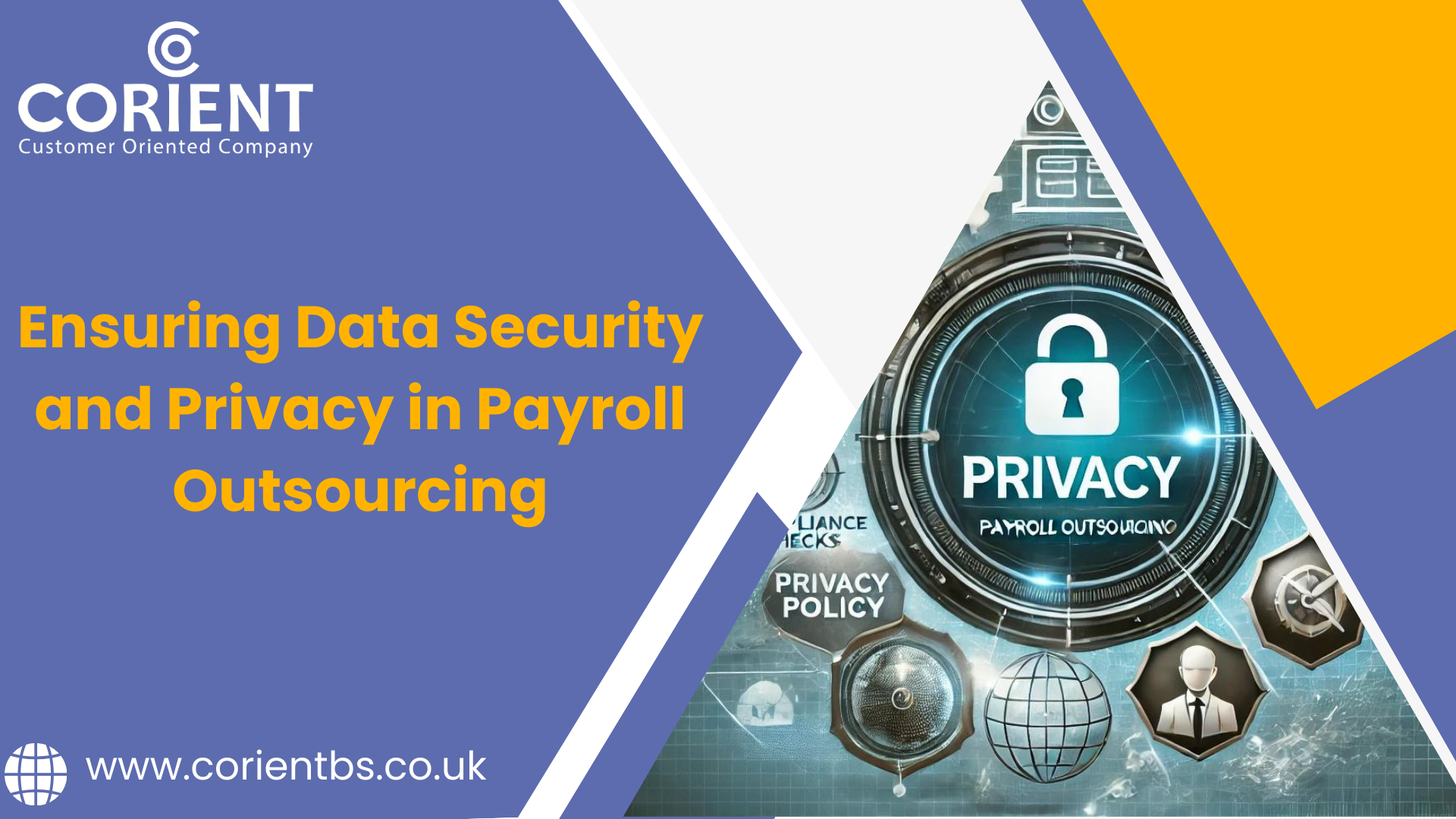In today’s digital age, many companies are choosing to outsource their payroll processes. This approach allows businesses to focus more on their primary operations, reduce costs, and improve efficiency. However, with these advantages comes a significant challenge: ensuring data security and privacy. Protecting sensitive employee information when outsourcing payroll is crucial for maintaining trust and meeting legal obligations. This article discusses how companies can ensure data security and privacy during payroll outsourcing.
- Why Data Security Matters in Payroll Outsourcing Data security in payroll outsourcing involves safeguarding critical information, including employee names, addresses, social security numbers, bank details, and salary information. A breach of this data can lead to severe consequences like identity theft, financial loss, and damage to the company’s reputation. Therefore, businesses need to prioritize data security when selecting a payroll outsourcing partner.
- Understanding Legal Requirements for Payroll Data Security Companies must be aware of the legal obligations surrounding data security. Regulations like the General Data Protection Regulation (GDPR) in Europe and the California Consumer Privacy Act (CCPA) in the United States set strict guidelines on handling personal data. Businesses outsourcing payroll must ensure their providers comply with these regulations to avoid fines and legal issues.
- Choosing the Right Payroll Outsourcing Provider Selecting a trustworthy payroll outsourcing provider is essential for data security. Companies should look for providers with a proven track record of data protection, robust security measures, and industry certifications like ISO/IEC 27001. Conducting thorough research, including background checks and customer reviews, can help assess the provider’s commitment to data security.
- Using Data Encryption and Secure Communication Channels Encryption is a powerful tool for protecting payroll data. It ensures that even if data is intercepted, it remains unreadable to unauthorized parties. Businesses should ensure their payroll outsourcing provider uses strong encryption standards, such as AES-256, for both data storage and transmission. Secure communication methods, such as Virtual Private Networks (VPNs) and Secure Sockets Layer (SSL) certificates, are also critical for transferring payroll data safely.
- Conducting Regular Security Audits and Compliance Checks Regular security audits are vital for identifying potential vulnerabilities in the payroll outsourcing Companies should collaborate with their providers to schedule frequent audits and compliance checks to ensure data security measures are current and effective. These audits should cover all aspects of data handling, including storage, access, and transmission, and should be conducted by independent third parties for unbiased evaluations.
- Implementing Access Control and Employee Training Limiting access to payroll data is another key element of data security. Companies should ensure that only authorized personnel can access sensitive information. Implementing role-based access control (RBAC) systems can help manage who can view or alter payroll data. Additionally, both the company’s employees and the outsourcing provider’s staff should receive regular training on data security best practices to minimize human error risks.
- Preparing for Incident Response and Data Breach Management Despite the best security measures, data breaches can still happen. That’s why having a strong incident response plan is crucial. This plan should detail the steps to take in case of a data breach, including how to contain it, notify affected parties, and report it to regulatory authorities. Payroll outsourcing providers should also be evaluated on their data breach management strategies and response times.
- Leveraging Cybersecurity Technologies in Payroll Outsourcing Advances in cybersecurity technologies have introduced new ways to enhance data security in payroll outsourcing. Tools like Artificial Intelligence (AI) and Machine Learning (ML) can detect unusual data access patterns, identify potential threats, and automate responses to security incidents. Implementing these technologies can greatly reduce the risk of data breaches and ensure continuous protection of payroll data.
- Balancing Data Privacy with Security While data security focuses on preventing unauthorized access, data privacy ensures that data is handled according to privacy laws and regulations. Companies outsourcing payroll must make sure their providers not only secure the data but also manage it following data privacy principles. This includes getting employee consent for data processing, ensuring data accuracy, and limiting data collection to what is necessary for payroll processing.
- Continuous Improvement and Future-Proofing Payroll Data Security Data security is an ongoing effort that requires regular updates and improvements. As cyber threats evolve, so must the security measures be protecting payroll data. Companies should work closely with their payroll outsourcing providers to stay ahead of emerging threats and adopt the latest security technologies and best practices. Future-proofing payroll data security involves staying informed about new risks and proactively addressing them.
Conclusion
Ensuring data security and privacy in payroll and accounting outsourcing is crucial for protecting sensitive employee and financial information while maintaining trust. By carefully selecting the right outsourcing provider, implementing robust security measures, and complying with legal requirements, businesses can outsource payroll and accounting functions without compromising data security. As cyber threats continue to evolve, continuous vigilance and improvement in data security practices will be essential to safeguarding both payroll and accounting data, ensuring long-term success.
